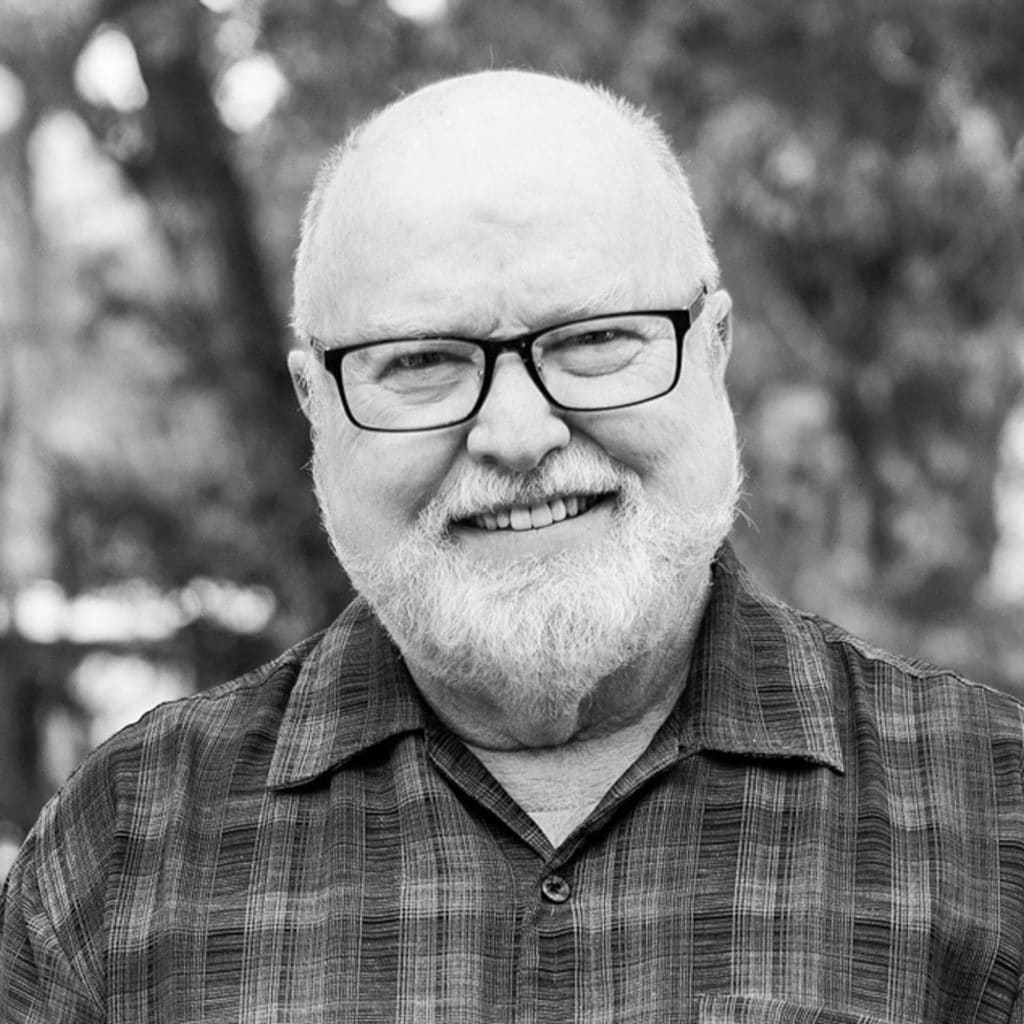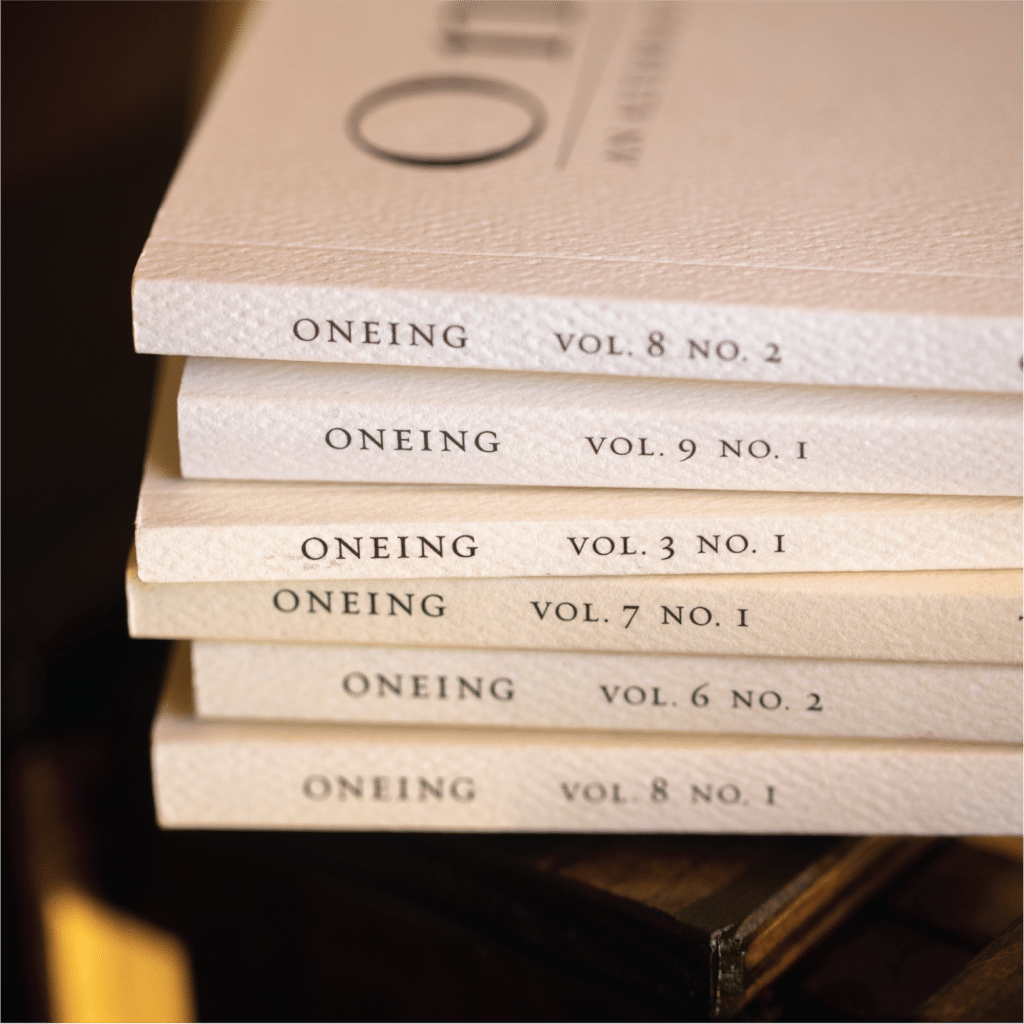“ONEING: The Path of the Prophet” is Out Now!
The inspiring, unforgettable fall issue of the Center for Action and Contemplation (CAC)’s biannual journal, ONEING: The Path of the Prophet takes readers on a journey through anger, grief, and love. If you — or another contemplative in your life — are listening for your own prophetic calling, this issue of ONEING offers timeless guidance for loving action.
We have collected three excerpts that offer deep insights into ancient and modern-day prophetic action. We hope they help you find the freedom and courage to redefine what it means to love each other in today’s suffering world.
Richard Rohr: “The Path of the Prophet”
In his essay “The Path of the Prophet,” CAC founder and author of the forthcoming “Tears of Things: Prophetic Wisdom for an Age of Outrage,” Richard Rohr explores the alchemy of prophetic anger, charting a journey to solidarity with, instead of separation from, the pain of the world.

The fact that we need more than anger became clear to me when I met with a man whose wife had given him divorce papers. He said, “I was so angry that it took me months to realize I was terribly sad at what had happened to both of us.” In that realization, he entered into solidarity with the whole situation. Instead of it being a movement against his former wife, it became a movement with her. I don’t think the man’s insight resolved the matter, but it resolved his own soul: He was no longer trying to stand against but to stand with.
I see that happening in the Hebrew prophets. They rage against sin as if they were above or better than it—then move into solidarity with it. Please understand that sin is not as much malice as wounded- ness. Sin is suffering. Sin is sadness. Many of us have learned as much from studying addictions, where it’s become somewhat clear that sin deserves pity, not judgment.
Sin is also the personal experience of the tragic absurdity of reality. It leads us to compassion. We must have compassion for the self, for how incapable we are of love, of mercy, of forgiveness. Our love is not like God’s love. Our love is not infinite. Our love is very measured— and usually measured out according to deservedness.
–Richard Rohr, excerpt from “ONEING: The Path of the Prophet” in limited-edition print and downloadable PDF.
William J. Barber II with Jonathan Wilson-Hartgrove: “The Watchman Sounds the Alarm”
Contributors William J. Barber II and Jonathan Wilson-Hartgrove analyze the prophet’s role in calling nations to act in for those at margins. Their essay, “The Watchman Sounds the Alarm,” an excerpt from the book “White Poverty: How Exposing Myths About Race and Class Can Reconstruct American Democracy,” unveils alarming truths about poverty in the United States — and offers hope for a better way.
Sixty-three percent of US workers today live paycheck to paycheck. The average worker in America makes $54 a week less than they did fifty years ago, after adjusting for inflation. When you think about all of the incredible advancements—or, at least, perceived advancements—in technology that have been made over the past fifty years—computers, robotics, artificial intelligence—and the huge increase in worker productivity that has been achieved during that time, it’s hard to comprehend that, when all is said and done, real weekly wages for the average American worker are lower today than they were in 1973. How is that possible? The answer is that virtually all the economic gains of the past half century have financially benefited the people on top, not working people….
America’s politicians, like the public leaders of Jeremiah’s day, have gone out of their way not to name the crisis afflicting nearly half of their constituents. Over the past half century, Republicans in public life have tended to blame the poor, repeating the myths that suggest poor folks are not people facing a problem, but rather are themselves the problem. Democrats, on the other hand, have tried to avoid talking about poor people by developing euphemisms like “those aspiring to the middle class.” Meanwhile, people who don’t have enough to make ends meet aren’t sure anyone sees them. Are they “working class” if they make it to their low-wage job in the minivan that their whole family slept in last night? …
A watchman has nothing but his voice to alert the community to the dangers he has witnessed. In ancient Israel, Jeremiah wept bitter tears and cried out in the public square. The more I’ve seen of America’s poverty, the more I cannot help but scream.
–William J. Barber II and Jonathan Wilson-Hartgrove, excerpt from “ONEING: The Path of the Prophet” in limited-edition print and downloadable PDF.

Pixie Lighthorse: “When Grief Flows, the Past Heals”
Pixie Lighthorse, a tribal member of the Choctaw Nation of Oklahoma and author of “Prayers of Honoring Grief,” weaves a path from external chaos to inner peace with her essay, “When Grief Flows, the Past Heals.” She explores healing our inner landscapes through the wisdom and experiences of Indigenous peoples.

The underground river within each of us is becoming more conscious, truth is coming to the surface, and with that comes collective and individual accountability. I find this to be an interesting time in history, ripe with possibility for spiritual growth and deeper, richer relationships to Self, Creator, the Great Mystery, and all beings. We are discovering our own nature and bringing curiosity to our changing values.
When felt and acknowledged, grief becomes a daily reprieve. Healing involves inviting in the truth of how we feel, which is constantly changing, and valuing it as much as our perception of reality and the world of matter. Our feeling bodies have been relegated to the shadows for the most part, pushed under the rug in favor of what’s more convenient and acceptable. Feeling can be vulnerable, and we’ve learned all the ways to mask emotions as part of our social conditioning.
Our feelings are our inner waters, and to Indigenous peoples, water is our First Medicine. We should not find it surprising that authentic feelings had to go underground during the centuries-long process of colonization and expansive frontierism. The raw material of awakening to healing is found in tolerating the discomfort of our heinous mistakes and those of our ancestors. What if we are at a tipping point on humanity’s timeline, where we must name what hurts, grieve the losses, and learn how to make larger-scale repairs? Redemption is the process by which we make new choices to clear our debts. Emotionally speaking, noticing and naming injustice leads to protection of what is sacred, starting today.
–Pixie Lighthorse, excerpt from “ONEING: The Path of the Prophet” in limited-edition print and downloadable PDF.
“We are led in this issue to see how the prophets point to a path by which the pain of our lives and world is refined into redeeming love,” writes CAC staff member Mark Longhurst in his editor’s note in ONEING: The Path of the Prophet. We hope this issue gives you hope and guidance for following your own prophetic path toward love.
Long-time ONEING designer Nelson Kane passed away after a struggle with cancer before the completion of this issue. His simple and elegant work, along with his heartfelt contemplative spirit, had an enormous impact on this publication. As you explore these excerpts, we invite you to think of him.
Established in 2013, ONEING is the biannual journal of the Center for Action and Contemplation. Renowned for its diverse and deep exploration of mysticism and culture, ONEING is grounded in Richard Rohr’s teachings and wisdom lineage. Each issue features a themed collection of thoughtfully curated essays and critical perspectives from spiritual teachers, activists, modern mystics, and prophets of all religions.
Browse the entire ONEING collection in our online bookstore.